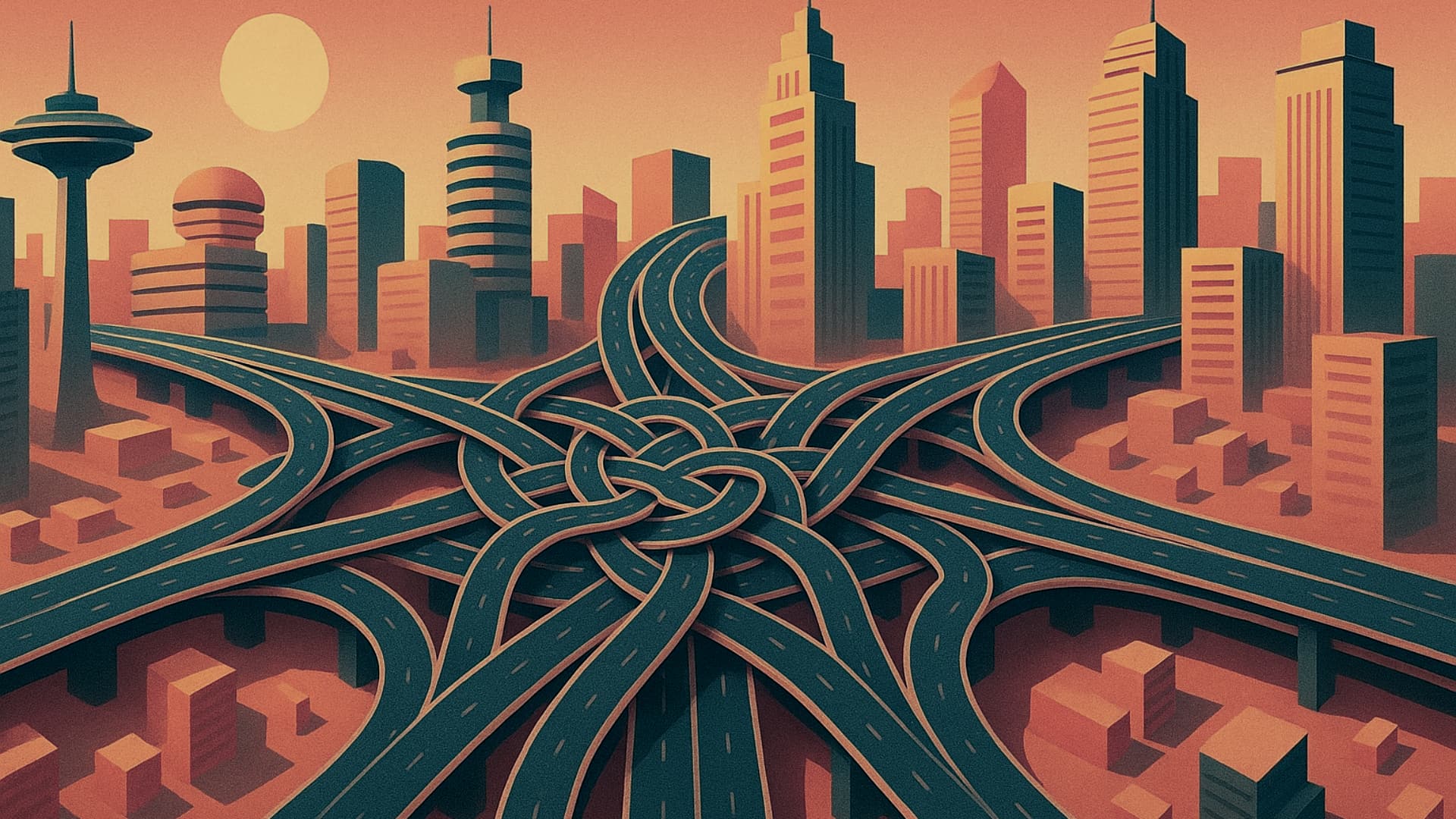If you’ve been following my work over the last 6 weeks, you know I’m working to transform my text-only weekly thought pieces into cross-platform insight pieces that can “play well” whether they’re in print, video, or audio/podcast formats.
The podcast + YouTube formats are still very new to me, so I’ve been leaning into what it means to be producing a weekly “show.” “If I’m going to put another podcast into the world, what does the world actually need?” has been the relentless question I’m asking to keep me sharp and focused. What is the unique perspective I can bring given my background and expertise, and what can I offer that would be helpful at this truly odd and special moment in time?
I’ve currently landed here: talk about where the world of work intersects with current events. I’ll do my best to make sense of what’s happening that week and provide an optimistic take in 15 minutes or less.
Does this type of podcast/video serve you in your life?? If you have thoughts, please drop me a line! I live and work in the spirit of running the experiment, so your thoughts and feedback are truly welcome.
This particular North Star means I am constantly paying attention to the headlines I am ingesting, trying to get a sense of the most important theme of the week. Sometimes it’s obvious, like last week’s government shutdown.
This week, I wanted to talk about the overall idea of the show itself — where work intersects current events — because I think the topic of “intersections” is extremely important right now.
So, I did my best to find the perfect headline to illustrate what I mean…
But I couldn’t.
There are literally too many examples.
Every headline I read feels like some kind of intersection, usually one that’s on fire — profit colliding with policy, governance colliding with business, labor colliding with tech, policy colliding with health, politicians colliding with humanitarians.
Here are a few that have come into my awareness this week just intersecting work and politics:
- A.I. and Deals Fizz Drown Out Politics
- SEC Chair Fast-Tracks Trump Push To End Quarterly Earnings Reports
- U.S. Preparing To Relax Big-Bank Capital Rules
- For-Profit Presidency: New Yorker Mag Reveals Trump Family’s Frenzy to Cash In on the White House (admittedly this original report is from August, but this headline found its way to my feed this week)
What I want to point out is that these aren’t really separate stories.
They’re all threads in the same unraveling cloth.
The entire news cycle is the headline: Everything is intersecting with everything else.
The Intersection Explosion
Oh, Donald Trump. How I wish I didn’t have to write about him, but today it’s unavoidable because he’s government and capitalism and entertainment rolled into one blaring human headline, incessantly playing on a chyron near you. He’s president and businessman and celebrity and influencer and brand — a walking, breathing, intersection explosion.
It seems his supporters might love this about him. His detractors might look at it and see democracy dying.
My point is: Donald Trump is the embodiment of intersecting things we’re told we should never intersect.
When I was a kid, it was widely understood that we “don’t talk about politics or religion.” You might still share this sentiment.
But good luck maintaining this position if you want to be a human that is ANY kind of aware of what’s happening in the world. Because right now, every other headline seems to be about politics or religion or some seriously wacky fusion of the two.
And then people tell speakers like me to stay out of politics… but what happens when politics invades my topic, which is work?
That’s the world we’re living in: one giant intersection where every lane is merging, honking, and pretending it still has a right of way. In this regard, Trump actually isn’t terribly unique; he’s just the loudest example of what’s now true everywhere.
Everything is at intersections these days — everything crosses over everything else.
There are no more clear boundaries for anything.
This is true for work, too, right? Very few employees get to leave work at their office, anymore. Our work is everywhere and in everything, scattered across the devices that travel with us (or are literally attached to our bodies).
Our systems were created for separation. They were built for and in a world where you could draw neat lines between work and home, public and private, church and state.
Those lines gave us the fantasy of control.
Now they’re collapsing under the weight of what the world is transforming into.
The Collapse Of Boundaries
We used to believe boundaries kept us safe.
Now, I’m afraid the illusion that they still exist is keeping us in denial about what’s happening. Here are just a few examples of the blurred boundaries I see all around us…
Religion + Politics + Work
- The Pope calls U.S. immigration policy “inhuman”
- Being in a “values-based company” sounds noble until you realize it means someone’s values get to rule everyone else
Personal + Professional
- Devices are everywhere and always on
- “Bring your whole self to work” sounds liberating — until organizations try to exploit your whole self in the name of “productivity”
Physical + Digital
- Remote work and mobile devices blurred the last wall between home and office
- Your online reputation can now endanger your physical safety
A.I. + Everything
- Private tech runs public infrastructure
- Automation is deciding who gets help, who gets fired, and who gets left behind
Every boundary that used to protect us has melted into a single, messy feedback loop. We’re living in the mash-up era, but our systems are still playing from sheet music written in the 1950’s y’all.
It’s no wonder why we’re all so friggin’ exhausted.
How We Got Here
Power has always benefited from division. If you can separate people, you can manage them. Divide worker from citizen, church from state, home from office, and you can pretend one world’s decisions don’t wreck another’s.
That’s how we get CEOs who pollute on Friday and donate to climate nonprofits on Saturday.
Politicians who preach family values while cutting family benefits.
A million federal workers told to work without pay while the president makes $3.4 billion.
A society where “mind your own business” becomes code for “don’t you dare question my business.”
Now, whatever walls we had are gone, and the hypocrisy is LOUD.
We can finally see the feedback loops — and once you see them, you can’t un-see them.
The Optimistic Rebellion
If intersections are inevitable, the rebellion is to design for them.
We need regenerative systems that see the natural world, our social spheres, civic entities, and our workdays as one ecosystem.
We need transparent governance that forces politicians to disclose — and disconnect — profit from policy.
We need energy-intelligent leadership that helps humans operate across these blurred boundaries without burning out.
We need public-private alignment that channels the same ingenuity that builds A.I. into rebuilding trust, safety, healthcare, and The Commons.
Pretending the walls still exist won’t protect us anymore.
It will only protect the people profiting from the illusion.
The Moral Of The Mess
Trump’s for-profit presidency isn’t a glitch — it’s a mirror.
It shows exactly how the system behaves when no one’s watching… or, more accurately, when the people who benefit from the system just don’t think you care enough anymore to stop them.
If a president can make billions while citizens go unpaid, that’s not corruption as much as it is the code just running as written.
The nefarious truth wasn’t that work and politics don’t mix. They’ve always been mixed. The reality you weren’t supposed to see was that you shouldn’t mix them — that you should stay quiet so others can monetize all the things that are merged.
Everything is already connected.
The only question is whether we are going to connect them with integrity or exploitation.
We can keep pretending boundaries exist — or we as a species can grow up and govern the intersections.
Hello Tomorrow
We built the industrial age on separation: factory here, family there, faith on Sundays, work on Mondays.
Then we wired the digital age for connection: everything networked, everything always on.
Now we’re discovering that connection without integrity isn’t the future we want.
The work of the next century is to bring wisdom to our intersections —
- to build systems that can handle complexity,
- to make profit and policy mutually accountable,
- to teach leaders how to act with courage and future-focus.
Because the lines are gone — and they’re not coming back.
Our task isn’t to redraw false lines.
It’s to learn how to live beautifully in the space among them.
We can’t separate work, politics, and profit anymore — and maybe we never should have tried.
The future was always an intersection.
We just finally realized we’re standing in it.


